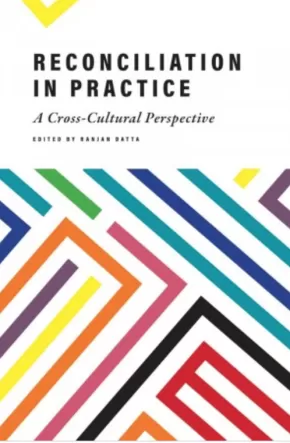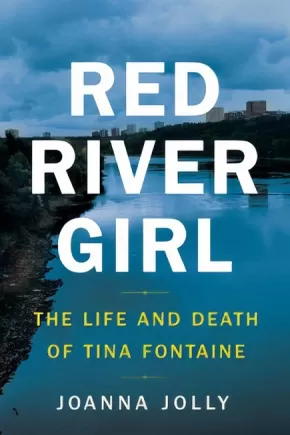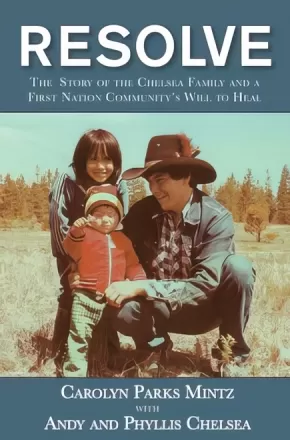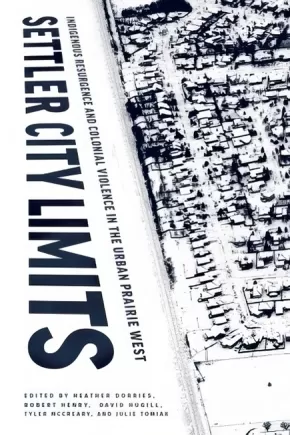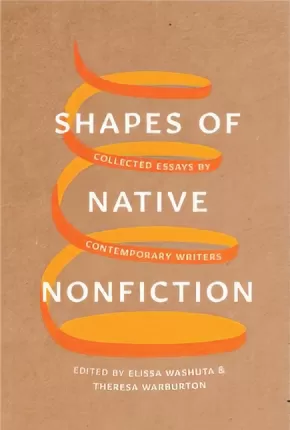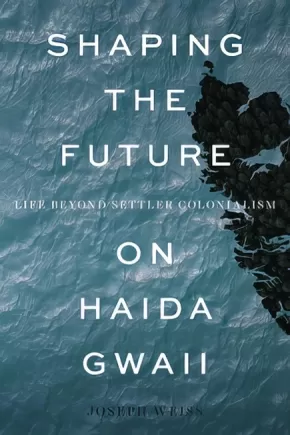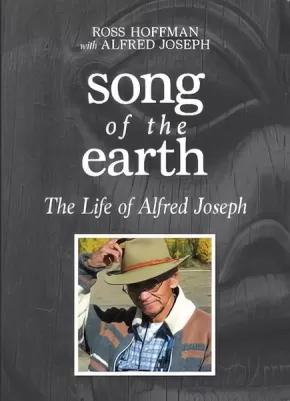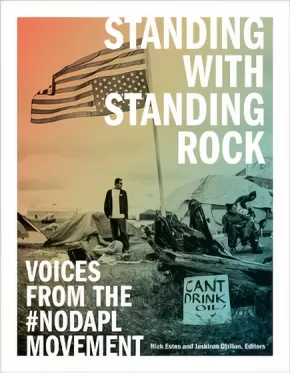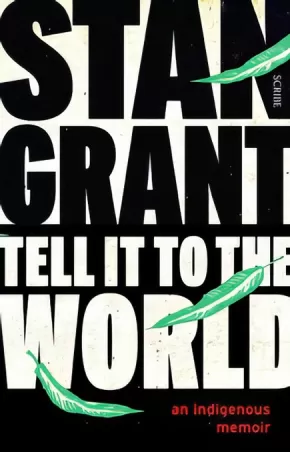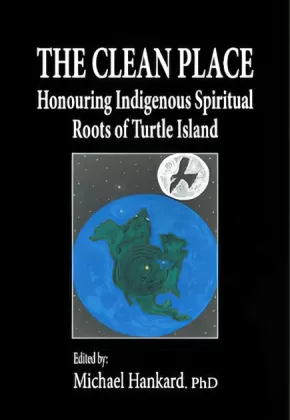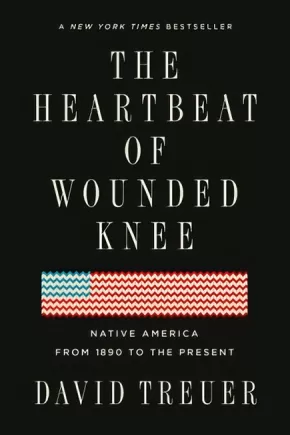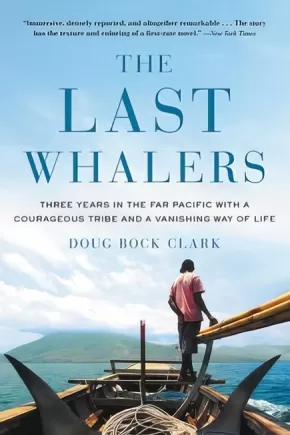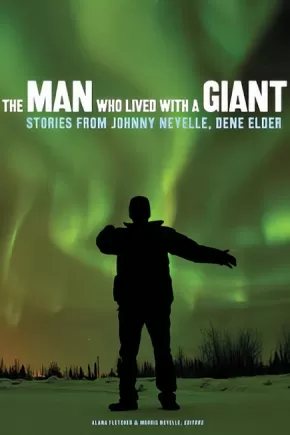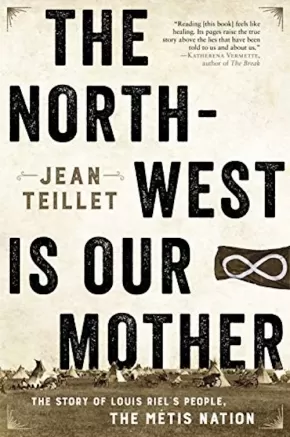Social and Cultural Studies
Synopsis:
In 2015, the Truth and Reconciliation Commission released a report designed to facilitate reconciliation between the Canadian state and Indigenous Peoples. Its call to honour treaty relationships reminds us that we are all treaty people — including immigrants and refugees living in Canada. The contributors to this volume, many of whom are themselves immigrants and refugees, take up the challenge of imagining what it means for immigrants and refugees to live as treaty people. Through essays, personal reflections and poetry, the authors explore what reconciliation is and what it means to live in relationship with Indigenous Peoples.
Speaking from their personal experience — whether from the education and health care systems, through research and a community garden, or from experiences of discrimination and marginalization — contributors share their stories of what reconciliation means in practice. They write about building respectful relationships with Indigenous Peoples, respecting Indigenous Treaties, decolonizing our ways of knowing and acting, learning the role of colonized education processes, protecting our land and environment, creating food security and creating an intercultural space for social interactions.
Perhaps most importantly, Reconciliation in Practice reminds us that reconciliation is an ongoing process, not an event, and that decolonizing our relationships and building new ones based on understanding and respect is empowering for all of us — Indigenous, settler, immigrant and refugee alike.
Educator Information
Table of Contents
Preface
Contributors
Introduction
Reconciliation: Challenges and Possibilities (Ranjan Datta)
Sámi Reconciliation in Practice: A Long and Ongoing Process (Irja Seurujärvi-Kari and Pirjo Kristiina Virtanen)
Reconciliation Through Decolonization (Colleen J. Charles)
Reconciliation: A White Settler Learning from the Land (Janet McVittie)
Integrating Indigenous Knowledge in Practice and Research: A New Way Forward for the Immigrant Health Professionals (Farzana Ali)
Reconciliation Through Transnational Lenses: An Immigrant Woman’s Learning Journey (Jebunnessa Chapola)
Letter to John A. Macdonald (Chris Scribe)
Reconciliation as Ceremonial Responsibility: An Immigrant’s Story (Ranjan Datta)
Reconciliation via Building Respectful Relationships and Community Engagement in Indigenous Research (Valerie Onyinyechi Umaefulam)
Reconciliation and New Canadians (Ali Abukar)
Holes and Gray (Khodi Dill)
References
Index
Additional Information
168 pages | 6.00" x 9.00"
Synopsis:
A gripping account of the unsolved death of an Indigenous teenager, and the detective determined to find her killer, set against the backdrop of a troubled city.
On August 17, 2014, the body of fifteen-year-old runaway Tina Fontaine was found in Winnipeg's Red River. It was wrapped in material and weighted down with rocks. Red River Girl is a gripping account of that murder investigation and the unusual police detective who pursued the killer with every legal means at his disposal. The book, like the movie Spotlight, chronicles the behind-the-scenes stages of a lengthy and meticulously planned investigation. It reveals characters and social tensions that bring vivid life to a story that made national headlines.
Award-winning BBC reporter and documentary maker Joanna Jolly delves into the troubled life of Tina Fontaine, the half-Ojibway, half-Cree murder victim, starting with her childhood on the Sagkeeng First Nation Reserve. Tina's journey to the capital city is a harrowing one, culminating in drug abuse, sexual exploitation, and death.
Aware of the reality of missing and murdered Indigenous women and girls, Jolly has chronicled Tina Fontaine's life as a reminder that she was more than a statistic. Raised by her father, and then by her great-aunt, Tina was a good student. But the violent death of her father hit Tina hard. She ran away, was found and put into the care of Child and Family Services, which she also sought to escape from. That choice left her in danger.
Red River Girl focuses not on the grisly event itself, but on the efforts to seek justice. In December 2015, the police charged Raymond Cormier, a drifter, with second-degree murder. Jolly's book will cover the trial, which resulted in an acquittal. The verdict caused dismay across the country.
The book is not only a true crime story, but a portrait of a community where Indigenous women are disproportionately more likely to be hurt or killed. Jolly asks questions about how Indigenous women, sex workers, community leaders, and activists are fighting back to protect themselves and change perceptions. Most importantly, the book will chronicle whether Tina's family will find justice.
Reviews
“Tina Fontaine brought international attention to the tragedy of missing and murdered Indigenous women, girls, and two-spirit folks. This retelling of her life and the investigation into her death is a breathtaking account of the fight to find justice for Tina.” —Wab Kinew, Leader of the Manitoba NDP and author of The Reason You Walk
Additional Information
320 pages | 6.00" x 9.00"
Synopsis:
Andy and Phyllis Chelsea met during their years spent at the St. Joseph’s Mission School in Williams Lake, BC. Like the thousands of others forced into the church-run residential school system, Andy and Phyllis are no strangers to the ongoing difficulties experienced by most Indigenous peoples in Canada. The couple married in 1964 but brought the trauma of their mission school years into their marriage. The Chelseas’ struggle with alcohol came to an abrupt halt in 1971 when their daughter, Ivy, then aged seven, stated that she and her brothers did not want to live with their parents because of the drinking, that they would stay with their Grandmother, their Kye7e. Andy and Phyllis chose sobriety to preserve their family. This decision sparked a lifetime of activism for the couple, which included overcoming the challenges caused by Canada’s disregard for their community. Throughout the twenty-seven years Andy was Chief of the Alkali Lake Esk’et First Nation, the Chelseas worked to eradicate alcoholism and took steps to overcome the rampant intergenerational trauma that existed for the people of Alkali Lake. Their efforts, their story and the perseverance of the members of their village have inspired Indigenous groups facing similar struggles throughout the world.
Resolve: The Chelsea Story and a First Nation Community’s Will to Heal explores the harrowing, personal journey of the Chelseas. By combining personal interviews and historical records, biographer Carolyn Parks Mintz shares the Chelseas’ transition from residential schools to state-sanctioned reservations to international recognition of their activism in the face of ongoing repression. A simultaneous celebration of strength and a condemnation of systemic racism, Resolve is a personal and deeply moving story that calls for a closer look at the status of Canada’s reconciliation efforts from the Chelseas’ perspective.
Educator Information
Recommended in the Canadian Indigenous Books for Schools 2020/2021 resource list for grades 10 to 12 for English Language Arts, Social Studies, and Social Justice.
Caution: Alcoholisms, trauma, physical and sexual abuse.
Additional Information
240 pages | 6.00" x 9.00"
Synopsis:
While cities like Winnipeg, Minneapolis, Saskatoon, Rapid City, Edmonton, Missoula, Regina, and Tulsa are places where Indigenous marginalization has been most acute, they have also long been sites of Indigenous placemaking and resistance to settler colonialism.
Although such cities have been denigrated as “ordinary” or banal in the broader urban literature, they are exceptional sites to study Indigenous resurgence. The urban centres of the continental plains have featured Indigenous housing and food co-operatives, social service agencies, and schools. The American Indian Movement initially developed in Minneapolis in 1968, and Idle No More emerged in Saskatoon in 2013.
The editors and authors of Settler City Limits, both Indigenous and settler, address urban struggles involving Anishinaabek, Cree, Creek, Dakota, Flathead, Lakota, and Métis peoples. Collectively, these studies showcase how Indigenous people in the city resist ongoing processes of colonial dispossession and create spaces for themselves and their families.
Working at intersections of Indigenous studies, settler colonial studies, urban studies, geography, and sociology, this book examines how the historical and political conditions of settler colonialism have shaped urban development in the Canadian Prairies and American Plains. Settler City Limits frames cities as Indigenous spaces and places, both in terms of the historical geographies of the regions in which they are embedded, and with respect to ongoing struggles for land, life, and self-determination.
Contributors: Chris Andersen, Nicholas Brown, Elizabeth Comack, Heather Dorries, Nick Estes, Adam Gaudry, Robert Henry, David Hugill, Sharmeen Khan, Corey Laberge, Brenda Macdougall, Tyler McCreary, Lindsey Claire Smith, Michelle Stewart, Zoe Todd, Julie Tomiak
Reviews
“Settler City Limits breaks ground, shattering the powerful authoritative structures of racism that have dichotomized rural and urban space, and Indigenous peoples’ relation to these as a central force sustaining and fortifying settler colonialism.” – Heather A. Howard-Bobiwash, Associate Professor of Anthropology, Michigan State University, and Affiliated Faculty Centre for Indigenous Studies, University of Toronto
Educator Information
Table of Contents
Introduction
Part 1 Land and Politics
Part 2 Contestation, Resistance, Solidarities
Part 3 Policing and Social Control
Part 4 Life and Death
Additional Information
368 pages | 6.00" x 9.00"
Authenticity Note: Contains contributions from both Indigenous peoples and settlers.
Synopsis:
Just as a basket’s purpose determines its materials, weave, and shape, so too is the purpose of the essay related to its material, weave, and shape. Editors Elissa Washuta and Theresa Warburton ground this anthology of essays by Native writers in the formal art of basket weaving. Using weaving techniques such as coiling and plaiting as organizing themes, the editors have curated an exciting collection of imaginative, world-making lyric essays by twenty-seven contemporary Native writers from tribal nations across Turtle Island into a well-crafted basket.
Shapes of Native Nonfiction features a dynamic combination of established and emerging Native writers, including Stephen Graham Jones, Deborah Miranda, Terese Marie Mailhot, Billy-Ray Belcourt, Eden Robinson, and Kim TallBear. Their ambitious, creative, and visionary work with genre and form demonstrate the slippery, shape-changing possibilities of Native stories. Considered together, they offer responses to broader questions of materiality, orality, spatiality, and temporality that continue to animate the study and practice of distinct Native literary traditions in North America.
Reviews
"In this anthology, shape matters. It turns the essay into a resistant form, pushing against the myth of the ‘disappearing Native’ and asserting a new narrative, one that isn’t subject to colonizing. . . . Shapes of Native Nonfiction is full of cognitive and emotional work. It turns the essay into something alive and breathing." - Cincinnati Review
"The medium is the message in this formally daring anthology of essays from Native writers, organized into basket-weaving themes such as ‘coiling’ and ‘plaiting.’ In these 27 essays by writers hailing from multiple tribal nations, some established and some newcomers, the Native experience is interrogated, elucidated, and celebrated." - Esquire
"In gathering contemporary Native nonfiction, this book elucidates the roots of the form-conscious essay and brings together the exciting current work of Native writers. In a sweeping decolonizing gesture, this anthology challenges the nonfiction canon as it’s been taught and creates a porous new space in its place." - Essay Daily
"Shapes of Native Nonfiction is. . . an accessible, engaging book, both for those who have read widely on the subject and for those seeking a place to begin." - New York Journal of Books
"This new collection of essays from established and emerging contemporary Indigenous writers is stunning both in-depth and scope. . . . The collection, expertly curated and structured by writer and Cowlitz Indian Tribe member Elissa Washuta (whose incredible essay Apocalypse Logic also appears here) and literary scholar Theresa Warburton, shines in every piece and in its existence as a whole. . . . In these pages, storytelling is a way of developing new Native nonfiction literary possibility." - Literary Hub
"Shapes of Native Nonfiction introduces the reader to a unique collection of voices, telling stories that shift from lost to living language, from history to lived experience. These shifts create new shapes for Indigenous writers to inhabit, explore and share. In this anthology, that shaping makes for a powerful read, and an absolutely necessary one" - High Country News
"In this far-ranging collection of essays, Indigenous writers explore family, home, landscape, identity, trauma, history, and memory. Some of the essays are about writing itself. Others tell stories about particular experiences or moments. Still others are more outwardly focused, exploring art, culture, and politics. Part of what makes this book so unique is the various innovative forms the essays take." - Book Riot
Additional Information
302 pages | 6.00" x 9.00" | Paperback
Synopsis:
Colonialism in settler societies such as Canada depends on a certain understanding of the relationship between time and Indigenous peoples. Too often, these peoples have been portrayed as being without a future, destined either to disappear or assimilate into settler society. This book asserts quite the opposite: Indigenous peoples are not in any sense “out of time” in our contemporary world.
Shaping the Future on Haida Gwaii shows how Indigenous peoples in Canada not only continue to have a future but are at work building many different futures – for themselves and for their non-Indigenous neighbours. Through the experiences of the residents of the Haida First Nation community of Old Massett on the islands of Haida Gwaii, Joseph Weiss explores these possible futures in detail, demonstrating how Haida ways of thinking about time, mobility, and political leadership are at the heart of contemporary strategies for addressing the dilemmas that come with life under settler colonialism.
From the threat of ecological crisis to the assertion of sovereign rights and authority, Weiss shows that the Haida people consistently turn towards their possible futures, desirable and undesirable, in order to work out how to live in and transform the present. His book breaks new ground in the exploration of the relationship between time and colonialism as experienced in the day-to-day lives of an Indigenous community.
Educator Information
This book will appeal to scholars and students of Indigenous studies, particularly in anthropology, ethnography, sociology, and history. Researchers planning to work with communities will learn from the author’s reflections on conducting ethnographic fieldwork with First Nations.
This book is the result of five years of fieldwork in Old Massett and Masset with the people of the Haida First Nation.
Reviews
"Grounded in respectful experience, observation, and interviews with Haida citizens, this book provides scholars with a complex understanding and analysis of how one Indigenous community adapts to and maintains a commitment, however difficult, to imagining and enacting a futurity determined by themselves, not settler colonialism. It will be widely read in Indigenous studies circles." - Kevin Bruyneel, author of The Third Space of Sovereignty: The Postcolonial Politics of U.S.-Indigenous Relations
"An engaging, contemporary ethnography … this lively book, with its rich theoretical bases, has the potential to further reconfigure and unsettle problematic ethnographic and popular texts on the Haida, and Indigenous peoples more generally." - Brian Thom, Department of Anthropology, University of Victoria
"In his highly original, carefully written, and theoretically grounded ethnography, Joseph Weiss describes how the people of Haida Gwaii engage in envisioning future-making, an aspirational and contested process that unsettles their own temporal displacement and potential erasure within settler colonialism … Shaping the Future points in a new direction and calls for a rethinking of ethnography as a method and the future of Indigenous nations within the state."- Bruce Miller, author of Oral History on Trial: Recognizing Aboriginal Narratives in the Courts
Additional Information
244 pages | 6.00" x 9.00"
Synopsis:
When your culture is banned and your land and resources stolen, it takes a special individual not only to survive but to thrive. Grounded in the wisdom of his elders, Gisdewe Alfred Joseph wove respect, kindness and courage into his years of service to the Witsuwit’en people of northwest British Columbia. As artist, teacher, chief band councilor, house chief and a lead plaintiff in Delgamuukw-Gisdewe – one of the most important Aboriginal title cases in Canada – Alfred relied on the lessons he learned as a boy to deal with a pervasive colonial reality. In Song of the Earth, Ross Hoffman opens the feast hall doors, throwing light on what the Witsuwit’en have lost and what they have preserved since settlers came to their lands.
Written in collaboration with Alfred Joseph, Song of the Earth brings us inside the heart and mind of a man who grew up in the heart of Witsuwit’en culture and lived to see it transformed. But he was no passive observer; he initiated and participated in legal battles that have reshaped how Canada addresses its colonial past and struggles to find ways to reconcile with Indigenous nations. In the face of current Witsuwit’en attempts to block pipeline construction across their territories in northwestern BC, this book provides insight into the people standing up for the rights that Canadian courts have affirmed.
Additional Information
200 pages | 5.50" x 7.50"
Authenticity Note: Because this work is a collaboration between the author and Alfred Joseph, it has received the Authentic Indigenous Text label.
Synopsis:
Dispatches of radical political engagement from people taking a stand against the Dakota Access Pipeline.
It is prophecy. A Black Snake will spread itself across the land, bringing destruction while uniting Indigenous nations. The Dakota Access Pipeline is the Black Snake, crossing the Missouri River north of the Standing Rock Indian Reservation. The oil pipeline united communities along its path—from North Dakota, South Dakota, Iowa, and Illinois—and galvanized a twenty-first-century Indigenous resistance movement marching under the banner Mni Wiconi—Water Is Life! Standing Rock youth issued a call, and millions around the world and thousands of Water Protectors from more than three hundred Native nations answered. Amid the movement to protect the land and the water that millions depend on for life, the Oceti Sakowin (the Dakota, Nakota, and Lakota people) reunited. A nation was reborn with renewed power to protect the environment and support Indigenous grassroots education and organizing. This book assembles the multitude of voices of writers, thinkers, artists, and activists from that movement.
Through poetry and prose, essays, photography, interviews, and polemical interventions, the contributors, including leaders of the Standing Rock movement, reflect on Indigenous history and politics and on the movement’s significance. Their work challenges our understanding of colonial history not simply as “lessons learned” but as essential guideposts for current and future activism.
Contributors: Dave Archambault II, Natalie Avalos, Vanessa Bowen, Alleen Brown, Kevin Bruyneel, Tomoki Mari Birkett, Troy Cochrane, Michelle L. Cook, Deborah Cowen, Andrew Curley, Martin Danyluk, Jaskiran Dhillon, Roxanne Dunbar-Ortiz, Liz Ellis, Nick Estes, Marcella Gilbert, Sandy Grande, Craig Howe, Elise Hunchuck, Michelle Latimer, Layli Long Soldier, David Uahikeaikalei‘ohu Maile, Jason Mancini, Sarah Sunshine Manning, Katie Mazer, Teresa Montoya, Chris Newell, The NYC Stands with Standing Rock Collective, Jeffrey Ostler, Will Parrish, Shiri Pasternak, endawnis Spears, Alice Speri, Anne Spice, Kim TallBear, Mark L. Tilsen, Edward Valandra, Joel Waters, Tyler Young.
Reviews
"As our songs and prayers echo across the prairie, we need the public to see that in standing up for our rights, we do so on behalf of the millions of Americans who will be affected by this pipeline."—David Archambault II, from the interior
"There is no alternative to water. There is no alternative to this Earth. This fight has become my life, and it’s not over. I think this is only the beginning for me, for all of us. Do you want a future for your children and grandchildren? If you want them to have a future then stand with Standing Rock because this is just the beginning of a revolution."—Zaysha Grinnell, from the interior
"We will put our best warriors in the front. We are the vanguard. We are the Hunkpapa Lakota. That means the horn of the buffalo. That’s who we are. We are protectors of our nation of Oceti Sakowin, the Seven Council Fires. Know who we are."—Phyllis Young
Additional Information
448 pages | 7.00" x 9.00"
Synopsis:
A teen's suspicious death, a shocking police cover-up and a mother's search for truth: this landmark investigation into justice and Canada's Indigenous people is re-issued and updated here for the first time in over a decade.
In 1990, on a brutally cold night, 17-year-old Neil Stonechild disappeared from downtown Saskatoon, last seen in police custody. His frozen body was found three days later in a field outside town. Though his mother pressed for answers, a cursory investigation pinned the blame on the teen himself, dead by alcohol and misadventure. Only in 2000, when two more men were found frozen to death, and a third survived his "starlight tour" at the hands of police, did the truth about Stonechild's fate begin to emerge. Soon one of the country's most prominent Indigenous lawyers was on the case, and an open secret was secret no more.
With exclusive co-operation from the Stonechild family, lawyer Donald Worme, and others, Starlight Tour is an engrossing portrait of rogue cops, racism, obstruction of justice and justice denied, not only to a boy and his family but to an entire nation.
Reviews
“For justice junkies like myself, this is a deeply engrossing account…. Should be compulsory reading for Canadian police recruits from sea to shining sea.” –William Deverell, The Globe and Mail
“The Stonechild story is ably captured by veteran CBC journalists Susanne Reber and Robert Renaud in a thoroughly researched, deftly written work…. A powerfully written, meticulously researched work with a cinematic feel, which should be on reading lists for students of Canadian history, journalism or law enforcement.” –Toronto Star
“The suspenseful and meticulous account of a very real and dark chapter in Canada’s modern history.” –TIME (Canada)
Additional Information
448 pages | 6.04" x 8.98"
Synopsis:
As an Aboriginal Australian, Stan Grant has had to contend with his country’s racist legacy all his life. Born into adversity, he found an escape route through education and the writing of James Baldwin, going on to become one of Australia’s leading journalists.
As a correspondent for CNN, he travelled the world, covering conflicts everywhere, from Baghdad to North Korea. Struck by how the human spirit can endure in the face of repression, he found the experiences of individuals he met spoke to him of the undying call of family and homeland. In the stories of other dispossessed peoples, he saw that of his own.
In Tell It to the World, Grant responds to the ongoing racism that he sees around him. He writes with passion and striking candor of the anger, shame, and hardship of being an indigenous man. In frank, mesmerizing prose, Grant argues that the effects of colonialism and oppression are everyday realities that still shape our world.
Additional Information
256 pages | 5.30" x 8.30"
Synopsis:
Within Turtle Island Indigenous people know that its spiritual centre is the ultimate mover within everything we do and are surrounded by. The Clean Place: Honouring Indigenous Spiritual Roots of Turtle Island illuminates the strong connection Indigenous people have with the land and the importance of a paradigm shift worldwide toward sustainable ways of thinking and being. The voices and perspectives of the writers weave traditional teachings, spirituality, and messages of hope, change, and transformation.
Reviews
"Hankard’s compilation takes us on a journey throughout Turtle Island and beyond, across sacred oceans to the ancestral homelands of our relatives. This journey illuminates a connecting theme of Indigenous existence on, from and with the land as a sacred being. Upon a shared reading of a chapter with my son, it was clear he embodied the teachings within – he was doing his part in maintaining the Clean Place." - Cindy Peltier, PhD, Chair Indigenous Education Nipissing University
Educator Information
Table of Contents
Dedication
Acknowledgement
Gchi-Biimskogaabiwiding
Introduction
Michael Hankard
1. I Still Have the Place
Lorraine Rekmans
2. Unsettling the Clean Place: Beginnings of a Philosophical Reflection
Réal Fillion
3. Giving Thanks for the Light
Ross Hoffman
4. In Place and Time: Indigenous Women’s Re-Weaving and Resistances
Laura Hall
5. The Healing Journey: Spirituality, Cultural Connection and the Significance of Aboriginal Peoples Relationship to the Land
John E. Charlton & John G. Hansen
6. Honouring Papatuanuku: Honouring Mother Earth
Taima Moeke-Pickering
7. Stewards of the Sacred
Cynthia Landrum
8. A Buffalo’s Breath on a Cold Winter Morning
Michael Hankard
9. Wahi Pana: A Hawaiian Sense of Place and Relationship to the Land
Umi Perkins
10. The Land is One with Us, and We are One with the Land: A Personal Journal
Emily Faries
11. Caring for Past/Present/Future Through Anishinabe Photography on the Land
Celeste Pedri-Spade
12. Washed ‘Clean’ in Zimbabwe: The Dzivaguru Creation Story
Collis G. Machoko
13. Reflections on Urban Connections to Land and Ceremony: Uncovering the Virtues of Creativity, Cultural Resiliency, Flexibility and Tenacity
Barbara Waterfall
14. Biinidsa: Going Home to Clean Up
Kevin FitzMaurice
Epilogue: Clean Water in the ‘Clean Place’?
Maurice Switzer
About the Authors
Additional Information
251 pages | 6.00" x 9.00"
Synopsis:
"Chapter after chapter, it's like one shattered myth after another." - NPR
A New York Times bestseller: The sweeping history–and counter-narrative–of Native American life from the Wounded Knee massacre to the present.
The received idea of Native American history–as promulgated by books like Dee Brown’s mega-bestselling 1970 Bury My Heart at Wounded Knee–has been that it essentially ended with the 1890 massacre at Wounded Knee. Not only did one hundred fifty Sioux die at the hands of the U. S. Cavalry, the sense was, but Native civilization did as well. Growing up Ojibwe on a reservation in Minnesota, training as an anthropologist, and researching Native life past and present for his nonfiction and novels, David Treuer has uncovered a different narrative, one of unprecedented resourcefulness and reinvention.
Melding history with reportage and memoir, Treuer traces the tribes’ distinctive cultures from first contact, exploring how the depredations of each era spawned new modes of survival. The devastating seizures of land gave rise to sophisticated legal and political maneuvering that put the lie to the myth that Indians don’t know or care about property. The forced assimilation of their children at government-run boarding schools incubated a unifying Native identity. Conscription in the US military and the pull of urban life brought Indians into the mainstream, even as it steered the emerging shape of self-rule and spawned a new generation of resistance. The Heartbeat of Wounded Knee is the essential, intimate story of a resilient people in a transformative era.
Reviews
“An informed, moving and kaleidoscopic portrait of ‘Indian survival, resilience, adaptability, pride and place in modern life.’ Rarely has a single volume in Native American history attempted such comprehensiveness . . . Ultimately, Treuer’s powerful book suggests the need for soul-searching about the meanings of American history and the stories we tell ourselves about this nation’s past.” —New York Times Book Review
“In a marvel of research and storytelling, an Ojibwe writer traces the dawning of a new resistance movement born of deep pride and a reverence for tradition. Treuer’s chronicle of rebellion and resilience is a manifesto and rallying cry.” —O, The Oprah Magazine
“Treuer is an easy companion: thoughtful, provocative and challenging. He tells a disturbing yet heroic story that may very well be seen as a definition of ‘American exceptionalism.’” —Washington Post
“Sweeping, essential history...Treuer’s storytelling skills shine...[an] elegant handling of [a] complex narrative.” —The Economist
“Treuer provides a sweeping account of how the trope of the vanishing Indian has distorted our current understanding of Native peoples. Instead of seeing Wounded Knee as the final chapter, he recovers the importance of World War II, urban migration, casinos, and the computer age in reshaping the modern Native American experience. The Heartbeat of Wounded Knee is written with conviction and illuminates the past in a deeply compelling way.” —Nancy Isenberg, author of White Trash: The 400-Year Untold History of Class in America
“An ambitious, gripping, and elegantly written synthesis that is much more than the sum of its excellent parts—which include a rich array of Native lives, Treuer’s own family and tribe among them--The Heartbeat of Wounded Knee brings a recognition of indigenous vitality and futurity to a century of modern Indian history.” —Philip J. Deloria, Professor of History, Harvard University
Additional Information
528 pages | 5.50" x 8.25" | 11 maps and photos throughout
Synopsis:
In this "immersive, densely reported, and altogether remarkable first book [with] the texture and color of a first-rate novel" (New York Times), journalist Doug Bock Clark tells the epic story of the world's last subsistence whalers and the threats posed to a tribe on the brink.
On a volcanic island in the Savu Sea so remote that other Indonesians call it "The Land Left Behind" live the Lamalerans: a tribe of 1,500 hunter-gatherers who are the world's last subsistence whalers. They have survived for half a millennium by hunting whales with bamboo harpoons and handmade wooden boats powered by sails of woven palm fronds. But now, under assault from the rapacious forces of the modern era and a global economy, their way of life teeters on the brink of collapse.
Award-winning journalist Doug Bock Clark, one of a handful of Westerners who speak the Lamaleran language, lived with the tribe across three years, and he brings their world and their people to vivid life in this gripping story of a vanishing culture. Jon, an orphaned apprentice whaler, toils to earn his harpoon and provide for his ailing grandparents, while Ika, his indomitable younger sister, is eager to forge a life unconstrained by tradition, and to realize a star-crossed love. Frans, an aging shaman, tries to unite the tribe in order to undo a deadly curse. And Ignatius, a legendary harpooner entering retirement, labors to hand down the Ways of the Ancestors to his son, Ben, who would secretly rather become a DJ in the distant tourist mecca of Bali.
Deeply empathetic and richly reported, The Last Whalers is a riveting, powerful chronicle of the collision between one of the planet's dwindling indigenous peoples and the irresistible enticements and upheavals of a rapidly transforming world.
Additional Information
368 pages
Synopsis:
Our parents always taught us well. They told us to look on the good side of life and to accept what has to happen.
The Man Who Lived with a Giant presents traditional and personal stories told by Johnny Neyelle, a respected Dene storyteller and Elder from Déline, Northwest Territories. Johnny Neyelle used storytelling to teach Dene youth and others to understand and celebrate Dene traditions and identities. Johnny’s entertaining voice makes his stories accessible to readers young and old, and his wisdom reinforces the right way to live: in harmony with people and places. Storytelling forms the core of Dene knowledge-keeping. A volume dedicated to making Dene culture strong, The Man Who Lived with a Giant is a vital book for Dene readers, researchers working with Indigenous cultures and oral histories, and scholars preserving Elders’ stories. Even more, it is a book for the Dene people of today and tomorrow.
Additional Information
152 pages | 6.00" x 9.00"
Synopsis:
There is a missing chapter in the narrative of Canada’s Indigenous peoples—the story of the Métis Nation, a new Indigenous people descended from both First Nations and Europeans.
Their story begins in the last decade of the eighteenth century in the Canadian North-West. Within twenty years the Métis proclaimed themselves a nation and won their first battle. Within forty years they were famous throughout North America for their military skills, their nomadic life and their buffalo hunts.
The Métis Nation didn’t just drift slowly into the Canadian consciousness in the early 1800s; it burst onto the scene fully formed. The Métis were flamboyant, defiant, loud and definitely not noble savages. They were nomads with a very different way of being in the world—always on the move, very much in the moment, passionate and fierce. They were romantics and visionaries with big dreams. They battled continuously—for recognition, for their lands and for their rights and freedoms. In 1870 and 1885, led by the iconic Louis Riel, they fought back when Canada took their lands. These acts of resistance became defining moments in Canadian history, with implications that reverberate to this day: Western alienation, Indigenous rights and the French/English divide.
After being defeated at the Battle of Batoche in 1885, the Métis lived in hiding for twenty years. But early in the twentieth century, they determined to hide no more and began a long, successful fight back into the Canadian consciousness. The Métis people are now recognized in Canada as a distinct Indigenous nation. Written by the great-grandniece of Louis Riel, this popular and engaging history of “forgotten people” tells the story up to the present era of national reconciliation with Indigenous peoples.
Additional Information
576 pages | 6.00" x 9.00"

